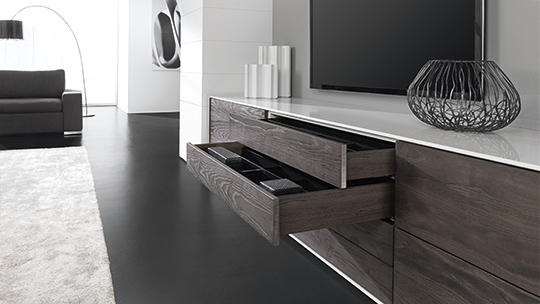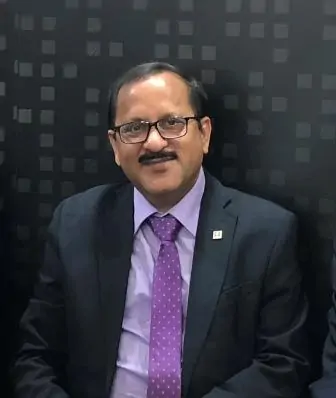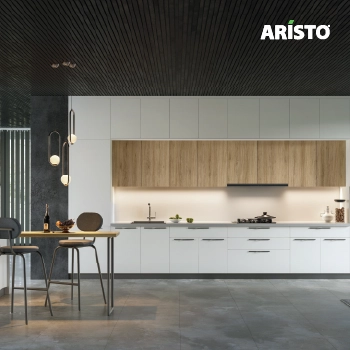
It’s quite informative to meet up with people who have formal education and training in the area they are working in. So, you meet Architects, Designers, Industry Consultants and many others who are formally trained and educated in their respective fields of work. What would your reaction be, if you meet someone in the wood-working industry who has a masters’ degree in Carpentry? Buildingandinteriors.com brings to you an exclusive interaction with Mr.Tarek Utturkar, Founder – Utturkar’s Wood Culture and Product Manager at GRASS GmbH. He is a trained Master Craftsman and enjoys working with companies in the wood-working industry to help them address various technical challenges.
B&I: You are a trained Master Craftsman with a formal degree in carpentry from Germany. What was the idea behind such a specialization?
TU: Education, like many other things in life, happens to be either by choice, coincidence or parental guidance. I come from a family of watchmakers. My father was the only Indian who was into manufacturing Grandfather Clocks. These were mechanical, weight-driven, 7-ft. tall clocks made out of wooden cabinets and worked on extreme precision mechanism. This was way back in the 1970s.
I had completed my higher education with a Diploma in Industrial Electronics. The ‘what next’ question starting ringing loud in my mind. As luck would have it, at a marriage function, we met a person from Germany. He was fascinated with our family business of manufacturing mechanical clocks. Incidentally, this person was a carpenter by profession and had an education in carpentry. After my father expressed interest in my getting a training in carpentry, he guided me and I enrolled for a professional course in carpentry in Germany. So that’s how carpentry happened to me.
I think that was a bold decision at that time because everyone else in my peer-group was either getting into computer technology or medicine. Even at that time, carpentry was not a course anyone would pursue. But I believe that was the best decision of my life. Today, even after 22 years I am the only Master Craftsman by qualification in India.

B&I: The German education system prepares its students for a vast variety of vocational and job oriented courses. Such system also exists in India, though on a limited scale. What are the challenges you see in the vocational studies in carpentry?
TU: I did my Bachelors in Carpentry, then went on to do the Masters in Woodworking. It’s been 30 years since I finished my education and still woodworking is looked down-upon as a career option. Acceptability of courses like carpentry are linked to our cultural system.
A person will choose to work as an office boy or a peon in a government office but will not choose carpentry as a job even though a carpenter will be earning more money. Education is not the problem, there are so many institutes that are teaching carpentry. There is this amazing Skill India initiative by the Government of India. The real challenge is to get the young generation interested in pursuing such career options. In India, when it comes to the percent of the workforce which has formal education in the vocation they are in, it is just around 5%. These percentages for countries like Germany and South Korea are 76% and 96% respectively.
Germany also has something called a dual education system. In India, we have a culture of learning followed by work, whereas in Germany, it is work and learn. The German industry plays an equal role in the education system. And that’s how it should be here in India.

B&I: How do you see solid wood in terms of work-ability based on your training in woodworking? What are the challenges?
TU: Wood-working has been a very old profession (and an art!) in India. We have had generations of artisans in India who have only worked with wood. In my opinion, the major challenge in the wood-working industry is working with the variety of wood and wood-derivatives namely, plywood, MDF, HDF, honeycomb board, etc. Every material requires a different technique and craft, with each material having it’s own advantages and limitations in applications.
B&I: As a component supplier to the wood-working industries, what are the value additions that you provide to the integraters?
TU: Being a Master Craftsman and equipped with the formal education in woodworking, actually helps me advise a whole range of businesses – right from a startup to companies who have been in the wood-working industry for as long as two decades. Whether it’s new technologies, selection of correct (specific) hardware or it’s integration with wood (installation of hardware), we help our customers and associates right through the whole process. This is what we call as value-addition. I bring back my understanding of our earlier family business of manufacturing clocks – for a clock to work to accuracy, functional hardware needs to be identified and integrated with an exact accuracy.

B&I: What is the reach of GRASS in India as on date? How do you plan to take GRASS to the next level in India?
TU: Well, I think, GRASS necessarily cannot be defined as a product for the masses. We have a very committed customer base which prefers to use GRASS products. If you ask me: ‘How long has GRASS been in India for?’, my answer is ’More than 25 years’. So, GRASS has a legacy in India. If you check, the top three out of five wood-working companies would be using GRASS. In my view, there is a clear differentiation between mass and class. In the mass market, two out top five would know GRASS or would be the customers of GRASS. If you ask class, then seven out of ten would be using GRASS.

B&I: Where does the Indian modular furniture industry stand vis-à-vis its global peers in terms of quality, price and scalability? What are the challenges and opportunities?
TU: The Indian modular industry has come a long way. In the year 1991, when the Indian market opened up to the world, it was also the time that the furniture industry also started gaining popularity. It’s been close to three decades and still we are an unorganised sector. Around 90-95% of the business is still controlled by carpenters, which means the organised modular furniture industries just constitute 5 to 10% of the total business. This shows the potential and challenges at the same time. So, there must be something in India that doesn’t allow the industry to grow the way it has grown in Europe or China. That’s probably because our industry is not focused on one specific area of the business. The only area which has seen tremendous growth is the office furniture segment and that too because the companies in office furniture produced material in an organized and focused way.
B&I: How do you see the impact of IKEA on the Indian furniture market – both from manufactures as well as market perspectives?
TU: As I said earlier, 90-95% of the business is still controlled by carpenters. IKEA is the complete opposite of that kind of business. Because IKEA talks about modularity, it talks about ease and it talks about getting the customer directly engaged in the manufacturing process. With that thought process, I believe it would be doing good to the industry. The dependency on the carpenter will reduce. The customer will be involved with the product that he is buying, instead of just paying the money (or at best, some design inputs). So, IKEA would have a huge positive impact on the industry and overall, the industry will gain the confidence of the customer.

























